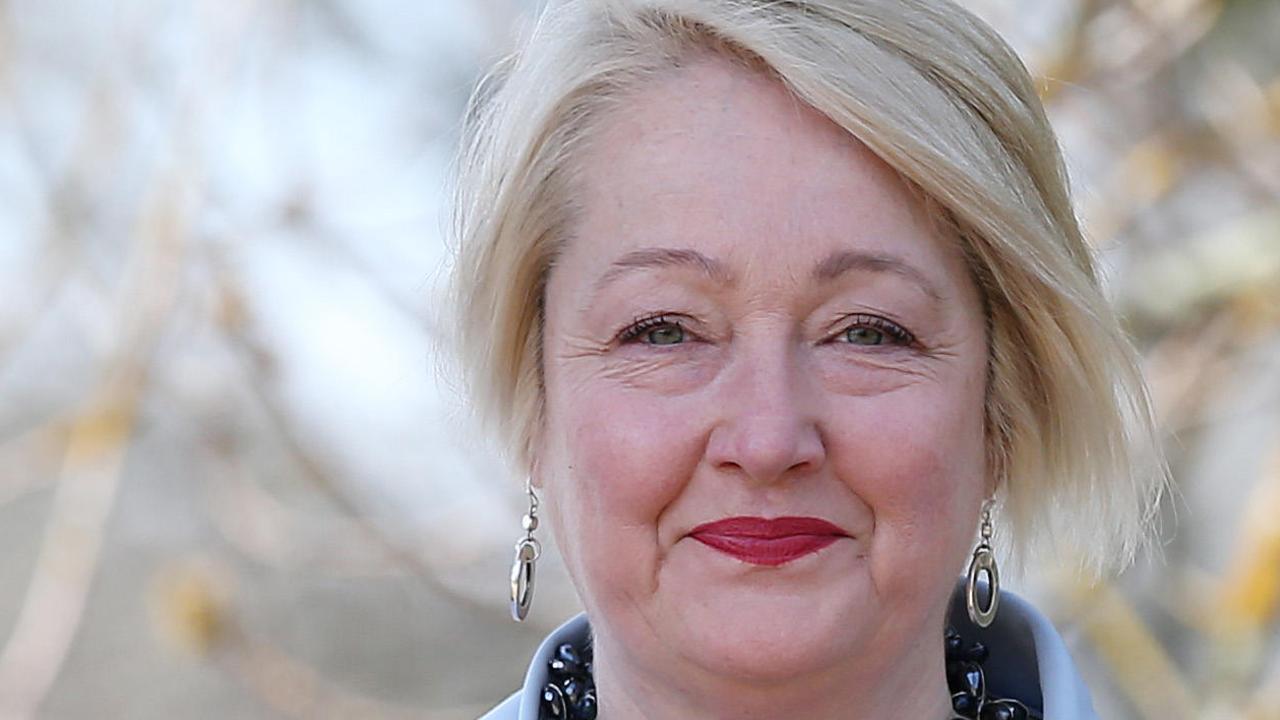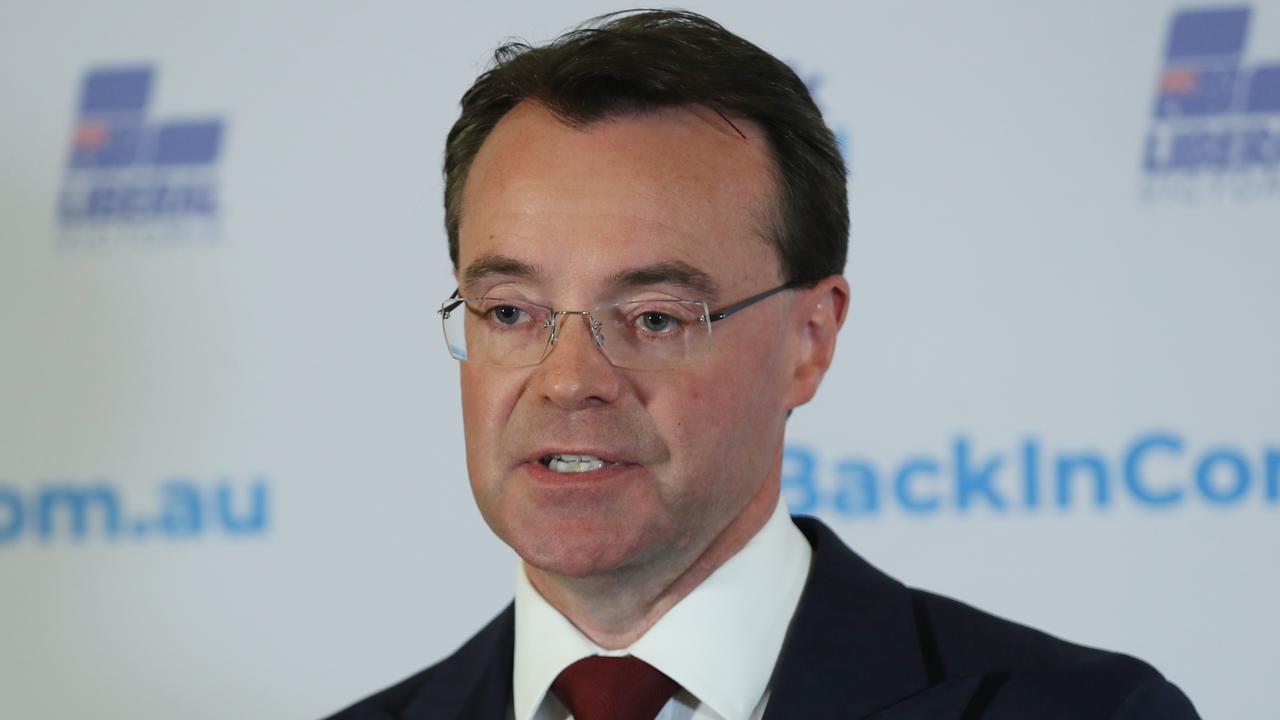Daniel Andrews and Matthew Guy ready to rumble as state election campaign heats up
WORKING at breakneck speed, Daniel Andrews is combative, often ideological, and can ignore critics. His political opponent, Matthew Guy, has similar tendencies. And the pair have sparred from day one.
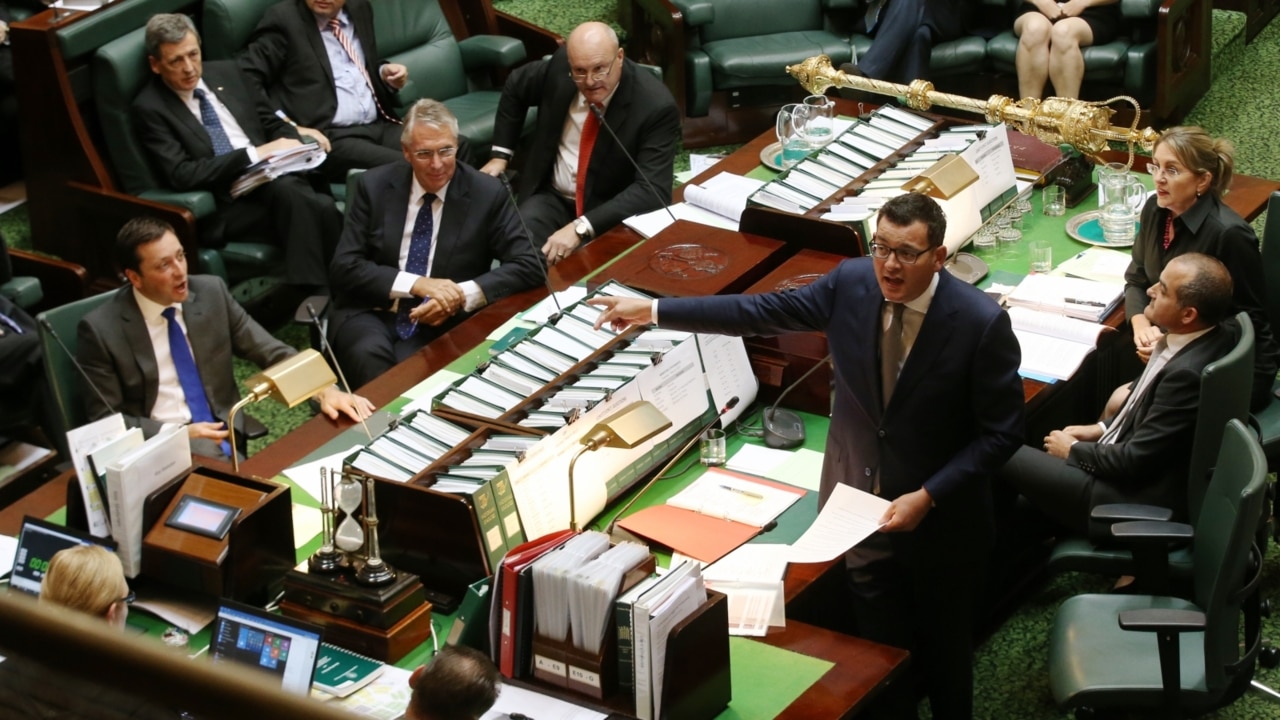
Victoria State Election
Don't miss out on the headlines from Victoria State Election. Followed categories will be added to My News.
HALFWAY through a turbulent first term, Premier Daniel Andrews held a Cabinet meeting to gauge views on voluntary euthanasia.
To the right of the Premier, who sits in a chair slightly taller than all others in the Cabinet room, was his deputy James Merlino, who respectfully outlined his staunch opposition. Richard Wynne, John Eren and Andrews himself raised experiences of dealing with relatives in pain.
MORE STATE ELECTION:
LYONS ‘BITTER’ BUT WILL PLACE NICE IF ELECTED
WHERE THE 2018 VICTORIAN STATE ELECTION WILL BE WON
ANDREWS TO RETURN A BIT GREEN, PREDICTS EXPERT
LABOR STILL LEADS POLL AS VOTERS SHY FROM HUNG PARLIAMENT
Others raised concerns that mid-term, social policy upheaval was a political brawl the government didn’t need.
There was no resolution. But a couple of weeks later Health Minister Jill Hennessy produced a detailed Cabinet submission. And MPs knew the fight was beginning.
For Andrews, there was no looking back: it was crash or crash through. And that, one minister told the Herald Sun, describes him well. Working at breakneck speed, he is combative, often ideological, and can ignore critics.
His political opponent, Matthew Guy, has similar tendencies.
The pair have sparred from day one, when the government dumped the contract the Coalition had signed for the East West Link.
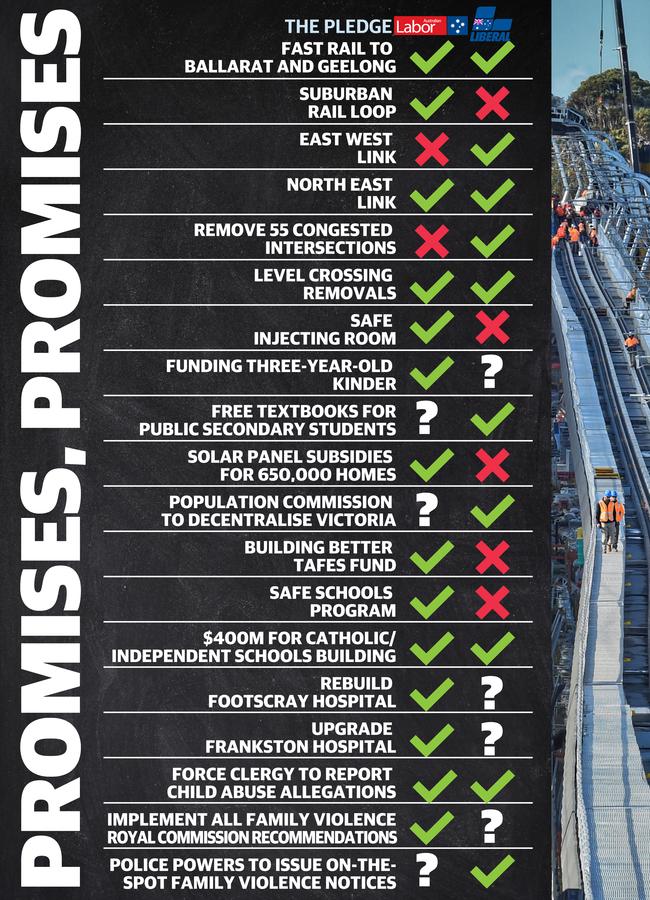
The premier who signed that contract, Denis Napthine, said the decision to scrap a major road project, which had been “recommended by a Labor Party-appointed panel”, was a disgraceful waste of $1.2 billion.
Guy immediately launched a campaign to highlight that waste.
To duck his punches, the Andrews Government threw itself into removing 29 level crossings, beginning the Metro Rail Tunnel project, and building new schools.
Treasurer Tim Pallas said the creation of a long-term infrastructure pipeline was the “big story of this government”.
“We have been able to give industry some certainty around about a $10 billion-a-year spending profile,” he said.
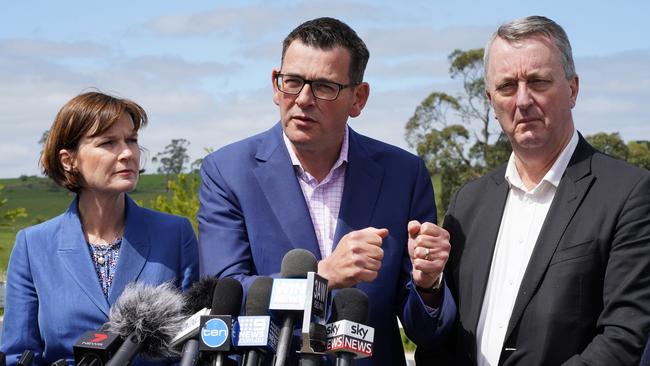
Another minister said: “Whatever you say about us, you can’t say we’ve done nothing.”
About 400,000 jobs have been created this term, but the closure of Hazelwood power station hurt the government — and drove up power costs.
A booming property market and increased payroll taxes helped stuff coffers, as did another $9.7 billion from leasing the Port of Melbourne.
One Liberal said: “Given how much money they have had, it’s remarkable we are still in the race”.
Some Labor MPs concede that their record on major projects is being tested by a succession of scandals.
These include the rorting of Speaker Telmo Languiller and Deputy Speaker Don Nardella, who resigned in disgrace. Corrections minister Steve Herbert also retired after revelations he ordered his taxpayer-funded driver to chauffeur his pet dogs, Patch and Ted, around.
But two other crises are boils that can’t be lanced.
An Ombudsman’s investigation into the party’s 2014 election campaign found almost $388,000 had been rorted by 21 MPs. Police are now investigating.
But what really made some Labor MPs throw their hands in the air was the government’s continual capitulation to the United Firefighters Union and its boss, Peter Marshall.
Andrews’s intervention in industrial disputes at the Country Fire Authority and Metropolitan Fire Brigade — which led then-minister Jane Garrett to resign from Cabinet, and to an all-out war with volunteers — created a stench that has lingered.
The Coalition has jabbed at Labor over the scandals.
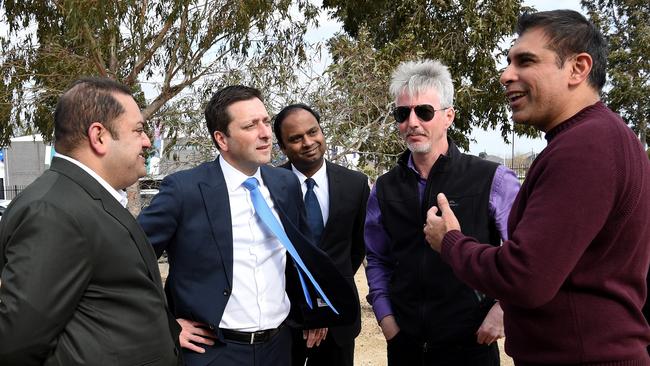
It has also kept a steady focus on law and order. Guy has doggedly pursued the government over shocking examples of street crime.
But it was a focus that wavered somewhat when Liberal members leaked details of his meeting with alleged mafia figure Tony Madafferi, at the Lobster Cave in southeast Melbourne.
Despite this, the parliamentary Liberal Party has been relatively united.
And crime — and public perceptions of it — kept hurting Labor, even after it finally addressed the problems with more police resources.
During one of the party’s many political crises, Pallas used a duck metaphor to contrast the trouble beneath the surface with the government’s ability to keep forging ahead: “There might be a lot of factional activity going on under water, but we are moving ahead smoothly.”
Police Minister Lisa Neville, who has also been a minister under premiers Steve Bracks and John Brumby, said this government had worked “at a scale and pace I have never seen”.
But Opposition treasury spokesman Michael O’Brien said the government haste had produced waste and higher taxes. “They could have made some real structural reforms.
“Instead debt is growing, taxes are up,” he said.
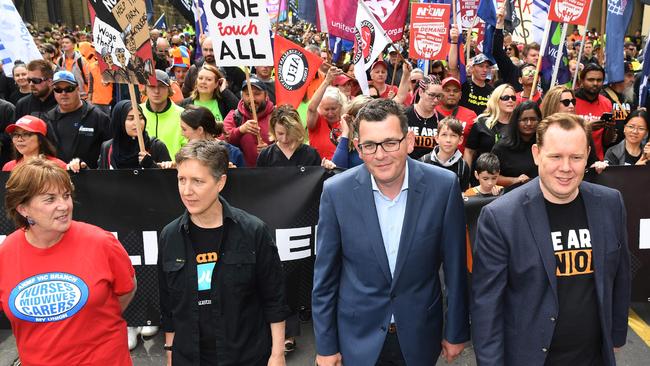
RMIT economist Professor David Haywood says the government’s record on social reforms and economic stability have been impressive, but “where they’ve been particularly bad is in the politics of it all”.
“They keep making one political mistake after another, which has robbed them of what you would otherwise think would be a substantial lead in the polls,” Prof Haywood said.
One of these critical “sliding doors” moments was in early 2015, when Andrews and his right-hand man Gavin Jennings called rising powerbroker Adem Somyurek into a meeting, telling him there would be a very open investigation into bullying allegations.
Not only did it cause a public scandal, it set off a chain of factional battles that have dogged Andrews ever since.
But the Premier has pushed on through it, leading some to dub him “Teflon Dan”.
Public Transport Minister Jacinta Allan said that when Andrews was elected leader some had underrated him, believing he would just “warm the chair” for someone else.
Others say Andrews has been authoritarian.
“The business model is the Socialist Left model. You ‘clap clap clap’ for Dear Leader, and if anyone speaks out of turn they’re gone,” one Labor source said.
“If you ‘clap clap clap’ hard enough for Dear Leader, you get rewards.”
Even Andrews’s fiercest critics admit he rarely puts a foot wrong in public, but there have been lapses internally. Shortly before Christmas in 2016, Andrews stunned his Cabinet by telling ministers their phones would be audited because of leaks.
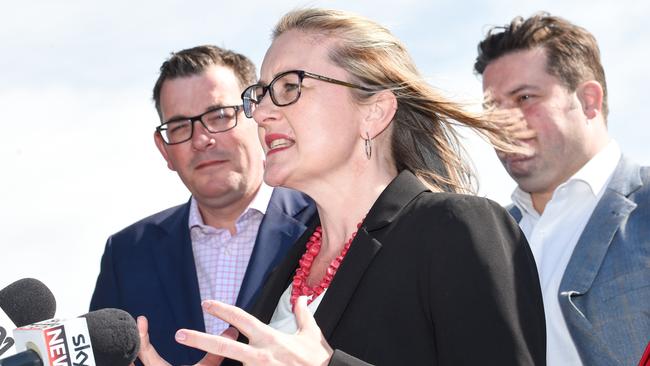
There was complete silence. Within hours, the plan itself was leaked. It was never mentioned in Cabinet again.
The next year, Andrews backflipped on a drug injecting room in North Richmond, which was risky during a raging debate on crime.
But first-term MP Fiona Patten, the Sex Party-turned Reason Party leader, said the government’s ability to make big social policy changes would be its legacy.
“The Premier has been able to change his mind. I am impressed by that,” she said.
The government held a royal commission into family violence and put $2.6 billion towards meeting its recommendations.
Laws for a treaty with Aboriginal Victorians were also passed.
In parliament, Labor and the Opposition clashed repeatedly.
In 2015, the Opposition and the Greens succeeded in getting the Ombudsman to investigate Labor’s 2014 campaign rort.
That led to a still current police investigation, in which officers launched “dawn raids” on Labor staffers who were involved in the scandal.
Labor attempted to exact revenge by making its own referrals to police, and also revealed documents outlining Matthew Guy’s dealings when he was planning minister. But that wild punch also landed on bystanders: private details of citizens, including Thor star Chris Hemsworth’s mum, were inadvertently released.
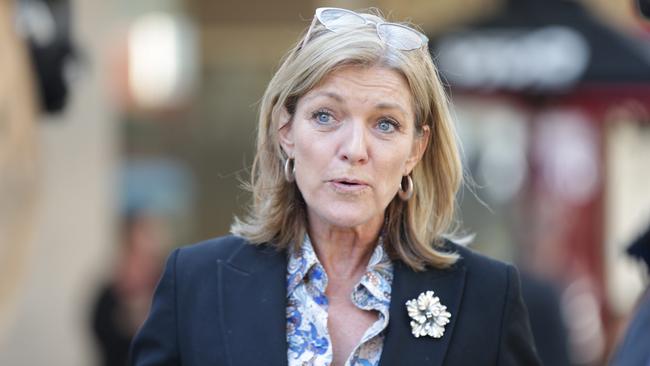
The role of independent MPs could be critical should the election deliver a hung parliament. The Greens are already eyeing a bigger role, believing they can add to three Lower House seats and maybe grab the balance of power.
Leader Samantha Ratnam said Labor might have to negotiate with the Greens if they win more seats. Logging of native forests, public transport, pokies reform and public housing are core issues of concern to the party.
The Liberals realise that while victory is within reach, it will be an uphill battle.
“We have been pretty good: we could have been better; we could have been much worse,” one Liberal MP said.
Opposition scrutiny of government spokesman Tim Smith said Guy had “a far more united and cohesive” party room than Andrews, and deserved credit for finding ways to set the agenda.
He said: “Across the country, Matthew was the first political leader to start talking about population and decentralisation”. In today’s Herald Sun, Guy writes that “Daniel Andrews and Labor have lost control of population growth, and Victorians are paying the price”.
But Andrews is standing by his four years in office and is looking to do more, saying Victorians deserve a government that makes “big, bold decisions”.
In four weeks, Victorians can make their choice.
It’s Guy versus Andrews: the Bulleen brawler versus the Mulgrave machine.
ANDREWS’ PROMISE: LEVEL CROSSING NIGHTMARE JUST GOT BETTER

